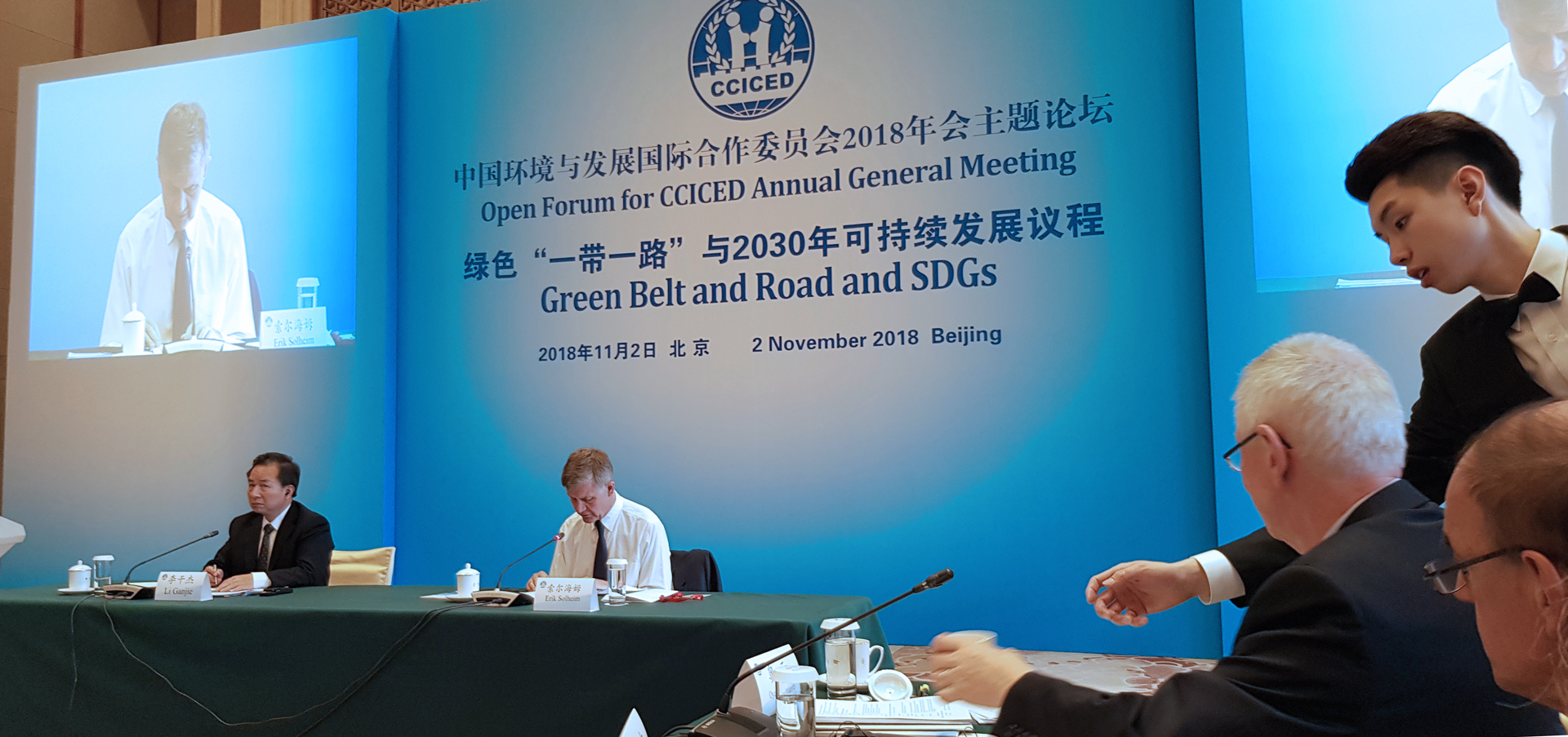BEIJING. On 1-3 November CAREC participates in the annual meeting of the Chinese Council for International Cooperation on Environment and Development (CCICED). Discussions at the event are focused on "Innovations of the new "green" era. Board members, special advisers and observers are participating in the annual meeting.
CAREC Executive Director Dr Iskandar Abdullaev is a special advisor to CCICED from 2017 to 2021. This is the sixth phase of the council, it was created as a high-level advisory body in 1992. In the current composition, CAREC is the only representative of the countries of the former Soviet Union among special advisers. This opens the possibility of sharing experiences, as well as prospects for joint environmental projects for the Central Asian region.
The main task of CCICED is to provide expert support to the government of China regarding environmental management, energy and biodiversity conservation. In addition, for 26 years, the council has become a platform for strengthening the dialogue between China and the world community.
On November 2, the parties discussed recommendations prepared by CCICED experts for the Chinese government. Recommendations are related to environmental management, green economy and biodiversity conservation:
-
Upgrade China’s contribution to global climate governance through enhanced action on climate change mitigation within China
-
Develop an ecological civilization approach to China’s roles in national and global ocean governance
- Play a strong leadership role in developing effective post-2020 global biodiversity conservation goals under the Convention on Biological Diversity (CBD)
- Carry out the greening of the Belt and Road Initiative (BRI) in the context of ecological civilization, and link selected activities to SDG2030 action plans of BRI partners
- Strengthen Performance of Green Development Institutional Social and Economic Reform in the Yangtze River Economic Belt (YREB)
Experts have formed specific tactical objectives for each of these areas. For example, among the objectives of the Belt and Road environmental sustainability is the introduction of mandatory investment requirements abroad to increase the corporate social responsibility of China and support the participation of civil society in the countries along the route.
.jpg)
“Within the Belt and Road Initiative China plans to invest $ 6 trillion over the next 20 years. This is a huge investment. And it can help to solve most of the infrastructure problems in developing countries. However, the sustainability and environmental issues of these investments is a key issue. China is also starting to play a major role in global processes,” said Dr Iskandar Abdullayev, CAREC Executive Director.
The meeting also hosted 8 open parallel forums on the goals of sustainable development, innovation, environmental management, green economy and biodiversity. The CCICED Special Policy Research Team presented reports on each of these areas.
At the forum dedicated to the Belt and Road megaproject, CAREC Executive Director Dr Iskandar Abdullaev made a presentation on Environmental Challenges, Potential Solutions and Cooperation Opportunities in Central Asia in the framework of the Belt and Road initiative.

Dr Abdullaev noted four main challenges in the region: demographic pressure, economic pressure, outdated infrastructure and legislation, and climate change. Iskandar Abdullaev also underlined the region’s environmental challenges: lack of water, land degradation, biodiversity reduction, waste management, climate change, and institutional weaknesses.
According to Dr Abdullaev, the Belt and Road initiative can open up opportunities to overcome these challenges, due to the fact that large-scale investment projects will be implemented in Central Asia. Environmental cooperation with China will provide an opportunity to make the economies of Central Asian countries green and competitive,” said Dr Iskandar Abdullaev.
The government of China is already working towards the environmental sustainability of the project. This year, the United Nations Environment Programme and the Ministry of Environmental Protection of the People's Republic of China created the International Coalition for Green Development on Belt and Road. The Regional Environmental Centre for Central Asia also joined the coalition to represent the interests of the region. The official start of the coalition’s work is scheduled for the first half of 2019.
